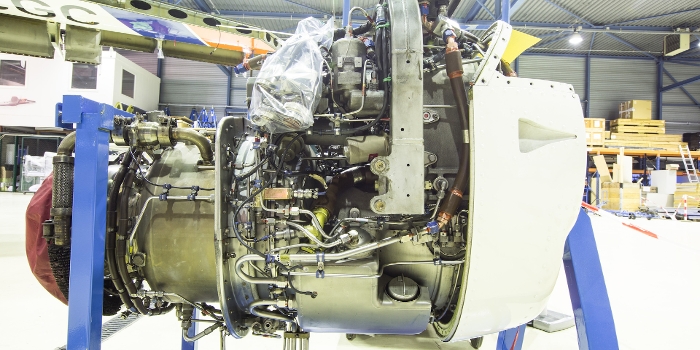Data Mining in MRO
ProjectThe project Data Mining in MRO aimed to help MRO SMEs in the aviation industry to improve their maintenance process by developing new knowledge of - and a method for - data mining. The project has been executed by the Amsterdam University of Applied Sciences (AUAS) with a wide range of partners, including universities and companies.

Staying competetive
In order to stay competitive and respond to the increasing demand for steady and predictable aircraft turnaround times, process optimization has been identified by Maintenance, Repair and Overhaul (MRO) SMEs in the aviation industry as their key element for innovation.
Indeed, MRO SMEs have always been looking for options to organize their work as efficient as possible, which often resulted in applying lean business organization solutions. However, their aircraft maintenance processes stay characterized by unpredictable process times and material requirements. Lean business methodologies are unable to change this fact. This problem is often compensated by large buffers in terms of time, personnel and parts, leading to a relatively expensive and inefficient process.
Data mining
To tackle this problem of unpredictability, MRO SMEs want to explore the possibilities of data mining: the exploration and analysis of large quantities of their own historical maintenance data, with the meaning of discovering useful knowledge from seemingly unrelated data. Ideally, it will help predict failures in the maintenance process and thus better anticipate repair times and material requirements.
Two challenges
With this, MRO SMEs face two challenges. First, the data they have available is often fragmented and non-transparent, while standardized data availability is a basic requirement for successful data analysis. Second, it is difficult to find meaningful patterns within these data sets because no operative system for data mining exists in the industry.
Analyzing and interpreting data
To help MRO's facing these challenges, in this project the current state of data presence within MRO SMEs has been explored, mapped, categorized, cleaned and prepared. This resulted in readable data sets that have predictive value for key elements of the maintenance process.
Next, analysis principles have been developed to interpret this data. These principles were translated into an easy-to-use data mining (IT)tool, helping MRO SMEs to predict their maintenance requirements in terms of costs and time, allowing them to adapt their maintenance process accordingly. Finally, in several case studies these products were tested and further improved.
Method: CRISP-DM
The approach in this project was based on the Cross Industry Standard Process for Data Mining methodology, commonly known by its acronym CRISP-DM. It is a data mining process model that describes commonly used approaches by data mining experts to tackle problems.
Using CRISP-DM – a generic roadmap for data mining activities – as the structure for this research proposal, a form of design based research is applied: solutions per step were tested, developed and have finally resulted in a ‘data mining roadmap’ and applications specifically designed for MRO process data mining.
Partners and funding
The project was financed through a RAAK MKB grant of the Dutch Ministry of Education. The partners who contributed to the project are: Netherlands Aerospace Group (NAG), JetSupport BV, NEDAERO, Exsyn, Novulo, JetNetherlands, KVE, Flying Service (BE), Tec4Jets, ABS Jets (CZ), CHC Helicopters, Royal Netherlands Air Force (RNLAF), Delft University of Technology.
Aviation Engineering
Data Mining in MRO is part of the Aviation Engineering research group. The aviation industry must become smarter and more sustainable. The Aviation Engineering research group at the Amsterdam University of Applied Sciences is ensuring the sector has all the knowledge and insight it needs to transition to, and develop, more-efficient en more-environmentally friendly engineering and operational practices.

